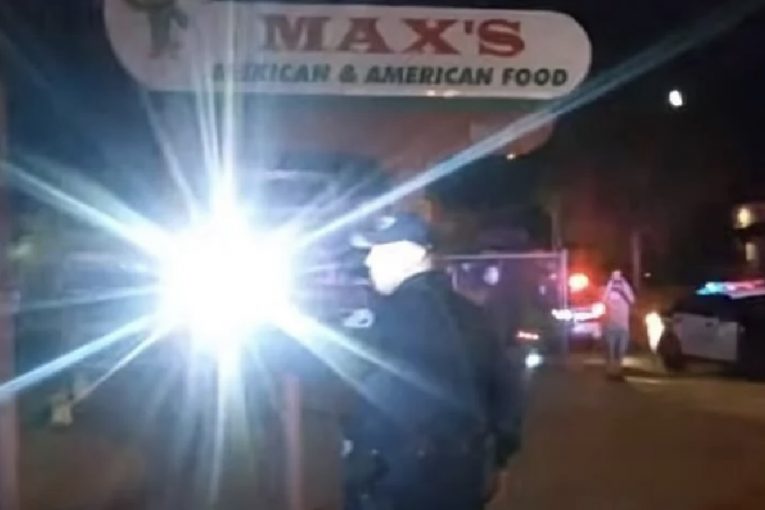

By Leila Katibah and Mihajla Milovanovic
LAKEWOOD, CO – Last week, YouTube blogger and journalist Abade Irizarry’s appeal was heard in the U.S. Court of Appeals, Tenth Circuit, after the district court initially dismissed his complaint that Officer Ahmed Yehia violated Irizarry’s First Amendment rights.
Irizarry regularly publishes stories about police brutality and misconduct. He, along with three other journalists, were filming a DUI traffic stop on May 26, 2019, when several officers on the scene contacted Officer Yehia to report four males filming.
Officer Yehia approached Irizarry with the intention of obstructing their footage of a DUI roadside sobriety test, claims Irizarry, but he and another journalist, Eric Brandt, voiced their disapproval of the obstruction.
Upon the journalists’ objections, Officer Yehia stood in front of the video camera, and shined a light, saturating the sensors of the camera, and Officer Yehia continued harassing the journalists until another officer told him to stop, according to the police reports.
He got back into his cruiser, “made a U-turn, ‘gunned’ his cruiser directly at Mr. Brandt, swerved around him, stopped, then repeatedly began to blast his air horn at [the two men]” until the journalist was instructed to leave for his “disruptive and uncontrolled behavior,” said the complaint by Irizarry.
Irizarry sued Officer Ahmed Yehia for obstructing his footage of a DUI traffic stop in Lakewood, Colorado. The Court deemed there was a constitutional violation, but held that Officer Yehia had qualified immunity because the violation was not one clearly established in law.
In this initial lawsuit, Irizarry alleged the officer violated his First Amendment Rights by his “blatant prior restraint” and depriving him of “freedom of the press” along with punishing Irizarry for exercising his rights.
 However, on July 11, 2022, the Appellate Court determined Irizarry violated clearly established law and was not entitled to qualified immunity, thus reversing and remanding the case for further proceedings on the basis of Irizarry plausibly alleging the three elements of a First Amendment retaliation constitutional tort.
However, on July 11, 2022, the Appellate Court determined Irizarry violated clearly established law and was not entitled to qualified immunity, thus reversing and remanding the case for further proceedings on the basis of Irizarry plausibly alleging the three elements of a First Amendment retaliation constitutional tort.
The first element of a First Amendment retaliation holds that Irizarry must prove his activities were constitutionally protected. Irizarry, the court said, proved filming police activity in public is constitutionally protected based on well-established principles set by the Courts in previous cases.
Filming police activity in public places is constitutionally protected because without some protection for seeking out the news, freedom of the press would be eviscerated, the court has maintained. A major purpose of the First Amendment was to protect the free discussion of governmental affairs to prevent abuses of power.
While the Tenth Circuit Court of Appeals has yet to recognize filming police activity in public as part of a First Amendment right, several decisions made in all other circuits have recognized it as such.
To overcome qualified immunity, the court said it must be clearly established Irizarry was exercising his First Amendment right to film police in public and that Officer Yehia’s actions would stop an ordinary person from filming. Officer Yehia’s actions were motivated by Irizarry’s constitutionally protected activity.
Additionally, in accordance with the prevention of filming, the court said it is also known that physical and verbal intimidation are also driving factors into “chilling a person of ordinary firmness” and in this case, firmness from continuing to film.
The two main reasons for this are that Irizarry was injured when the Officer stood in front of his camera shining the light and that Officer Yehia directed violence toward Irizarry by driving his vehicle right by him and his colleagues.
Irizarry also made it a point to prove that Officer Yehia only arrived at the scene originally solely for the purpose that they were filming, not because of the DUI traffic stop.
Because of the established law that is to be free from retaliation for filming the police, Irizarry has proven that the officer had in fact violated a constitutional right, the court said.
The Tenth Circuit and the Supreme Court do not recognize the First Amendment to film the police, but over six other circuits have, establishing it as a law.
However, Officer Yehia argues that because the Tenth Circuit does not recognize this, it cannot be used against him
There have been major issues with Irizarry’s argument with the other circuits, and the Tenth Circuit found it difficult to state that filming the police was an established law in the year of 2014, the time of the incident.
The right to film the police became recognized by many circuits in May of 2019.
Included in the arguments of Officer Yehia, was the idea that “[b]ecause as of 2005, it was unremarkable that a reasonable government official should have been clearly understood that physical and verbal intimidation violates citizens constitutional rights.”
The opposing arguments are explained at length, rebutting Officer Yehia’s side. Between the three elements of the First Amendment retaliation that are explained in each of Irizarry’s arguments, filming the police is a clearly established law which the officer failed to recognize, the Court determined.
The Tenth Circuit reversed, sending the case back for review, supporting Irizarry’s appeal.
